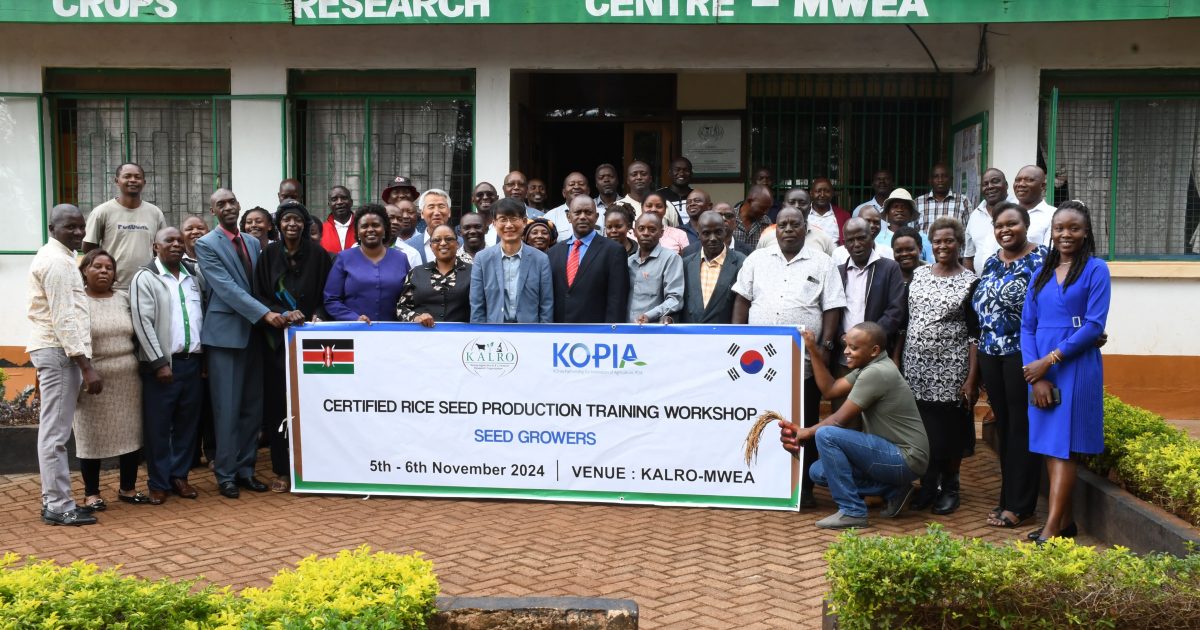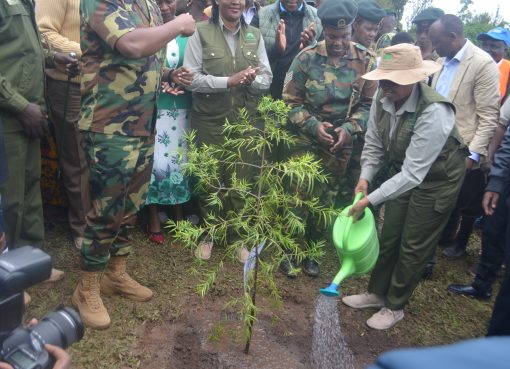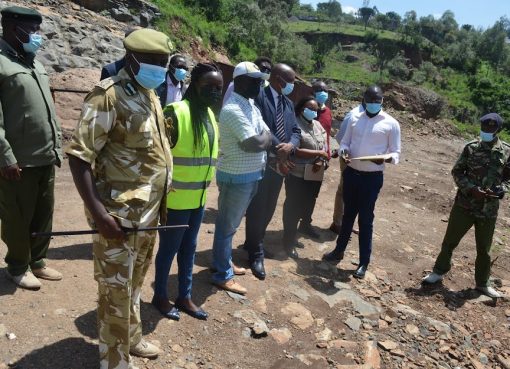Farmers in Mwea Irrigation Scheme have been trained on production of quality seeds as well to use certified seeds to increase their yield which would ensure that the country is food secure.
The training by Kenya Agricultural and Livestock Research Organisation in partnership with The Korean Programme for International Co-operation in Agriculture Technology (KOPIA) will equip the farmers with skills, knowledge, and information required to produce quality rice seeds.
The director Kenya Agricultural and Livestock Research Organisation (KALRO) Mwea, Dr Ruth Musila, said studies had shown that use of certified seeds would significantly impact on the yield of crops especially cereals.
Speaking in Mwea Kalro Mwea Research Centre during the workshop, she said inadequate certified seedlings have forced farmers in the country to use farm saved seeds which has impacted negatively on the harvest.
“Farmers have been using farm saved seeds, which usually affect production. That is seeds that are grown, harvested and planted again. The output is less. Certified seeds have a high germination percentage, free from pests and diseases with increased yield of up to 25% ,” she said.
Dr Lusike Wasilwa, Director Crop Systems at Kenya Agricultural and Livestock Research Organization (KALRO) said the training will target over 500 Mwea rice seeds producers in different phases. She noted the per capita consumption of rice in Kenya has doubled and Kenya currently cannot produce enough rice to meets its domestic demands,
“The per capita consumption of rice has grown from 12 kilograms in 2016 to currently 28 kilograms, with this high consumption we are unable to produce enough,” Dr Lusike said.
She added with current importation of 80% of rice, Kenya is losing foreign exchange, attributing to insufficient seeds in the country. She said it is impossible to import over 1000 tonnes of seedlings necessitating the need for local production by farmers in places like Mwea which enjoy irrigation services.
“Through government’s Bottom-up Economic Transformational Agenda strategy to reduce imports, rice is one of the commodities to reduce. We want to produce enough quality seedling which will led to increase in production”
Wasilwa also noted apart from researched varieties from KALRO they are getting other countries from other partner-countries producing rice with expected over 15 varieties in next 3 years.
The Korean Programme for International Co-operation in Agriculture Technology (KOPIA), which teamed up with KALRO training, aims to address challenges related to seedling production through the use of technology.
Through the adoption of modern farming technologies and the commercialisation of harvests, KOPIA’s focuses on increasing farmers’ incomes by implementing advanced technologies, such as improved post-harvest processes especially drying of rice.
Kim Jong, KOPIA Kenya Director, explained that the programme aims to develop technology for selecting varieties, transplanting, management of weeds and diseases and dry rice given most farmers currently dry their rice on grounds along the roads
Farmers’ representatives praised the initiative, noting that the training offers a promising alternative way of producing quality seeds and adoption of technology in the farms. Francis Njoroge, seasoned rice seedling producer, said the training will equip farmers with more knowledge to produce quality certified seeds. This will in turn increase income.
By Mutai Kipngetich





